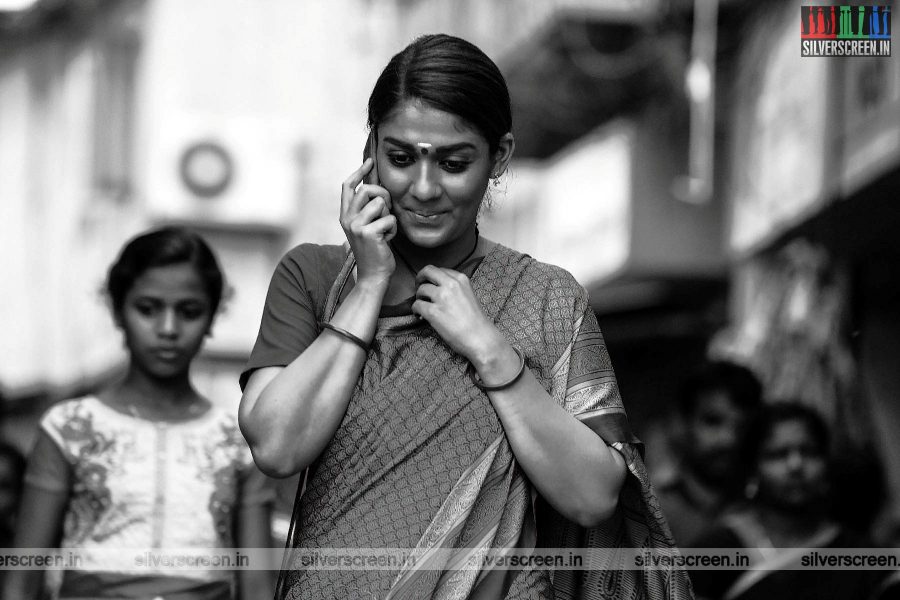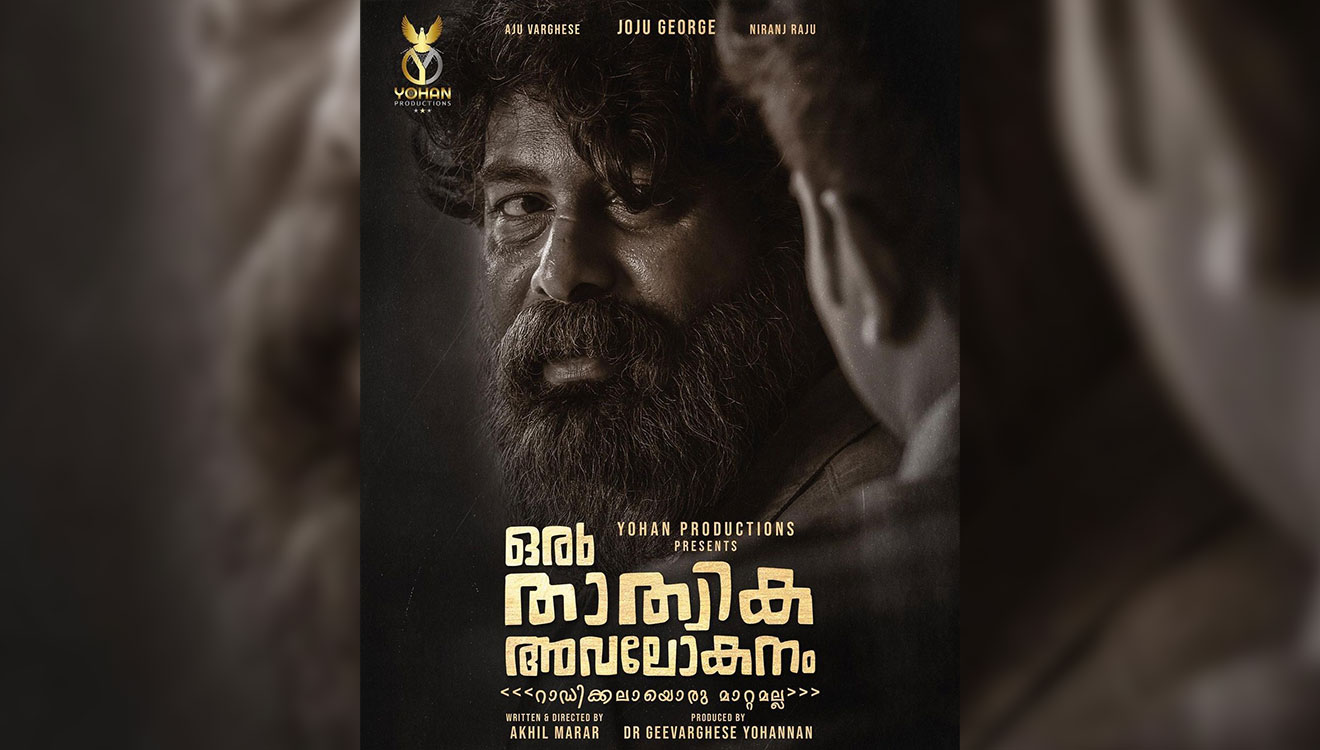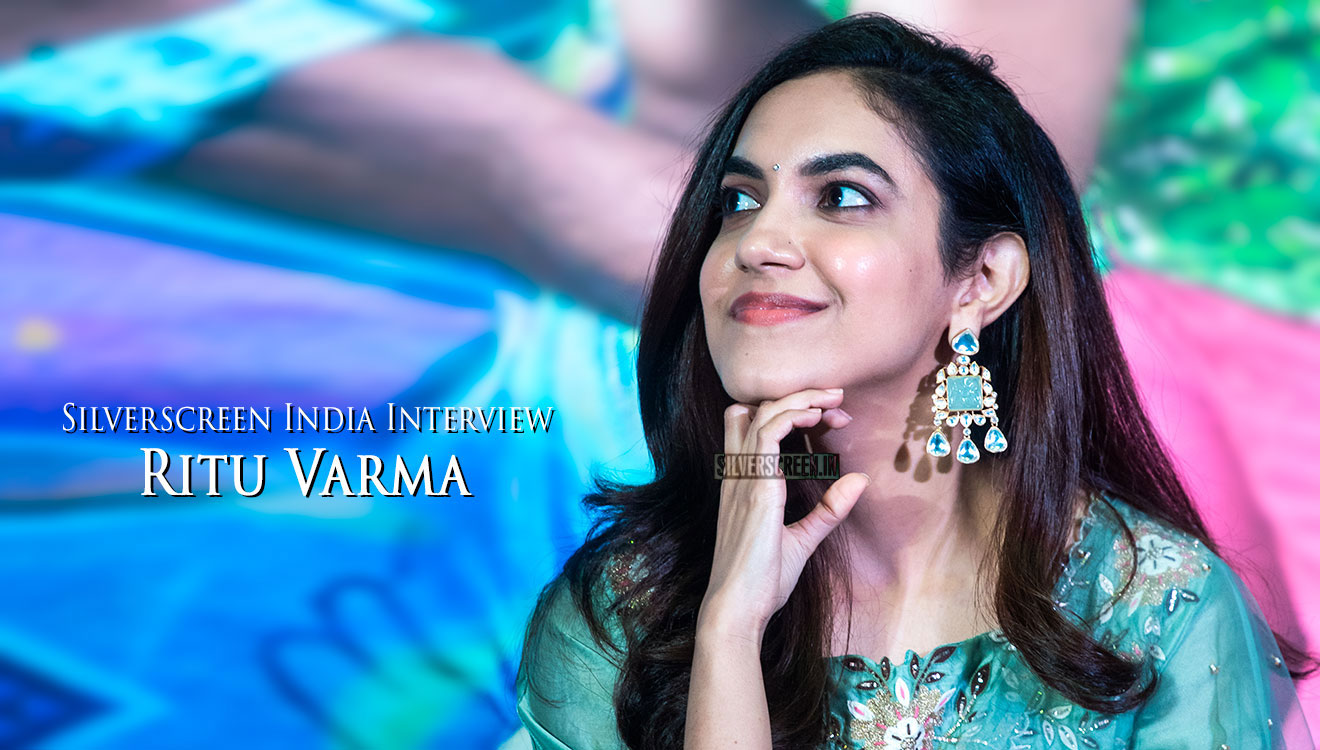In hundred years of Tamil cinema, little has changed when it comes to the colour of the lead woman’s skin, and its absolute endorsement by viewers. The need to have a fair-skinned heroine is so deep-rooted that even dusky characters in films are portrayed by actresses who need layers of dark make-up to look the part. In the upcoming Airaa too, one of the roles that Nayanthara plays is that of a dark woman, but director Sarjun says his film is all about rewriting the destiny of such characters.
In 1963, veteran actor Vijayakumari played the role of Kalyani – a dark-skinned and uneducated woman despised by her husband and his family – in the film Naanum Oru Penn (I Too Am A Woman). On the day of her wedding to the hero SS Rajendran, the latter’s family would accuse her of cheating them ‘by showing a fair-skinned woman’ before fixing the marriage, and a ‘dark-skinned’ one on the D-day. Through the next few scenes, Kalyani would patiently go around ‘educating’ her folks about how skin colour is less important than a woman’s character.
Almost two decades later, a similar wedding happened on the Tamil screen in Gopurangal Saivathillai. Mohan, married to an illiterate and dark-skinned village woman (Suhasini), would desert his wife for an attractive Radha in Bangalore. A dejected Suhasini ended up playing the domestic worker in Radha’s house where Mohan also lived.
In between and after, Tamil cinema witnessed a slew of heroines and other women characters whose complexions were deliberately darkened, and who were thus condemned to remain unhappy. While – unsurprisingly – dark-skinned actresses were few and far between, those who had to look dusky for their parts did not have ‘respectable’ roles. Apart from being steeped in misery, these characters also became objects of ridicule on screen, just to earn some laughs.
In the 1990 film Ulagam Piranthathu Enakkaga, Goundamani would literally paint his sister pink so she would become ‘saleable’ in the marriage market. The elaborate process on screen was peppered with a generous dose of racism and insensitivity. A decade and half later, the ‘dark skinned’ women still remained undesirable as illustrated in what was thrust as a ‘comedy sequence’ in the 2007 film Sivaji. Solomon D Pappaiah, who played the role of Shriya Saran’s neighbour in the movie, would try to lure Rajinikanth to his home with his two daughters – Angavai and Sangavai – who were portrayed as dark skinned. The scene also had some crass commentary mouthed by actor Vivek.
(A song from Naanum Oru Penn, sung by P Susheela, with lyrics by Kannadasan. Vijayakumari as Kalyani laments the way in which society discriminates against dark-complexioned women.)
While the sequences in Tamil cinema centered around the dark skin of women were blatantly racist or trumped up for comedy, the actresses perhaps saw scope to do more performance-oriented roles in such characters. In an interview, Vijayakumari recalls how she was initially discouraged from taking up the character of Kalyani in Naanum Oru Penn but it ended up bringing her laurels. Arukkani, Suhasini’s role in Gopurangal Saivathillai, became a metaphor of sorts for such women.
Jeny Dolly, a member of director Ranjith’s directorial team, observes that ‘making a woman appear dark is perhaps the greatest of injustices meted out to her on screen’ in Tamil cinema. “Because they are condemned to suffer, to struggle and remain unhappy. I basically think it shows our lack of imagination,” she says.
On the other hand, a dark-skinned Saritha did act in many path-breaking roles, making her one of the finest actors in Tamil cinema. Yet, in most such ‘performance-oriented’ roles, Saritha either played an insecure or distressed woman. Roles like that of a sex worker in Thappu Thaalangal (1978), and a person living with schizophrenia in Agni Sakshi, fetched Saritha the title of being a fine actor. But the question as to why such seemingly ‘powerful’ roles are decidedly left for dark-skinned women to perform is something that doesn’t have a satisfactory answer yet.
“Tamil cinema has always been insensitive to dark skinned women,” notes K Bharathi, writer, whose book Thamizh Cinemavil Penn (Women in Tamil Cinema) is considered seminal on the issue. “If the women are shown as dark-skinned, it will always almost be because they have to suffer. In Naanum Oru Penn, Vijayakumari was weeping throughout.”
Bharathi says the fascination for fair skin is relatively recent – as recent as the colonial period. “Marco Polo, when visiting the Pandiya kingdom, has noted how dark-skinned people were held so high in esteem that it was customary to apply sesame oil to newborn babies to help darken their skin. It was when the British started ruling us that this fascination for fair skin crept in. Obviously, they were fair and their colour came to be associated with that of power,” Bharathi says.
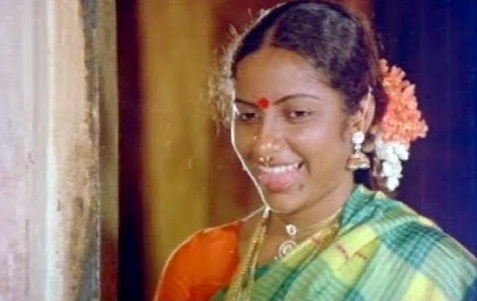
Bharathi takes a relatively more considerate look at Gopurangal Saivathillai where Radha is shown as ‘more mature’ in her attitude to the complex issue of a cheating man caught between two women, but she is quick to point out that Radha perhaps could afford to let him go ‘because of the confidence that probably her skin colour and sophisticated approach’ gave her. “In that sense, it is fundamentally flawed,” she reasons.
Two things were striking in all such performances. The fair-skinned actresses played the roles of dark-skinned women, and even in doing so, they were denied the luxury of falling in love with fair-skinned, suave men. They have almost always been subject to a liberal dose of humiliation before being accepted for their ‘good character.’ On the contrary, several dark-skinned men of Tamil cinema have always been entitled to fall in love with fair-skinned heroines. In a twisted case of irony in Sivaji, Shriya would initially reject Rajinikanth’s proposal for marriage citing his dark skin as the reason, prompting Vivek to throw a tantrum.
*****
Recommended
Rohini as Pappamma in Magalir Mattum (1994) was perhaps one of the refreshing exceptions in the portrayal of dark-skinned characters in Tamil cinema. The role was fun and vivacious, but Rohini does admit that having dark skin for the role of a domestic worker subscribed to a certain stereotype. She also recalls the way filmmaker Balu Mahendra preferred dark skin because the camera ‘always accentuated it and showed it in different shades.’ “When I was working in Marupadiyum, he would tell me to not wear make-up. He kept saying how dark-skinned women were actually more attractive and had different shades,” she says. But the likes of Balu Mahendra are few in number in Tamil cinema.
In recent times, director Bala’s heroines would strikingly stand out – both Dhansika and Vedhika in the 2013 film Paradesi were made to wear dark make-up and were ‘unhappy.’ In Naan Kadavul, Pooja was blind and dark, and would end up being a beggar. Even in a ‘rural’ film like Kadaikutti Singam, the heroine – Sayyesha – was essentially alien and fair skinned. It took the arrival of Ranjith to portray characters with dusky skin in roles that were largely positive and humane, giving fair screen space to heroines like Nanditha, Aishwarya Rajesh, and Rythvika in his movies. Eshwari Rao in Kaala made a phenomenal comeback as a forty-plus, brown skinned heroine opposite a reigning superstar.
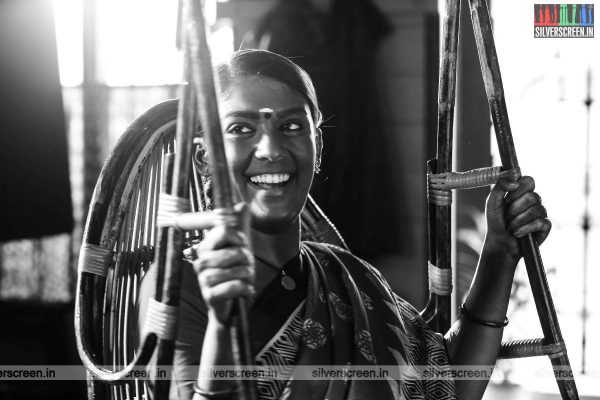
Filmmaker Sarjun, meanwhile, whose Airaa stars Nayanthara in a dual role, one of them being that of a dusky woman called Bhavani, said in an interview with Cinema Express that Nayanthara wasn’t originally thought of for the role, but was roped in when he began rooting for the character as the script progressed.
Speaking to Silverscreen, Sarjun says that while dark skinned heroines are almost often shown as oppressed and struggling in Tamil films, his film is all about finding redemption, “Obviously, in my film too, she’s portrayed that way because that is what happens in the society. A cursory glance at a matrimonial site should tell you. But I do not want to end it that way. And that is the most important thing in this movie. I give them hope.”
*****
Airaa is scheduled to release tomorrow.
*****
Kavitha Muralidharan is an independent journalist based out of Chennai, writing on politics, films and literature. This essay is a Silverscreen exclusive.
